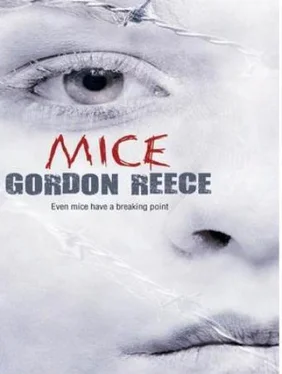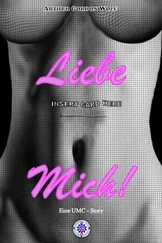In light of what happened next, I’ve often thought about the way their looks changed around the same time that their behaviour towards me started to change. And I’ve wondered if there was any connection. Does the way we look affect our personality? Or does our personality affect the way we look? Does the warpaint turn the tribesman into a fierce warrior? Or does the fierce warrior put on the warpaint to advertise his cruelty? Does a cat always look like a cat? Does a mouse always look like a mouse?
Whatever the truth might be, the fact was that I didn’t change. I still worked hard in class and crammed for my tests and coloured my maps. I still came top in English and art, but now I often finished top in history, French and geography as well. I still jumped out of my skin if a teacher shouted in class. I kept my hair in the same style I’d worn it in since I was nine — straight, shoulder-length, with a fringe. I grew a little taller but didn’t lose my puppy fat — I still had rolls on my belly, and my thighs rubbed together when I walked. I didn’t start wearing make-up to school like they did, as Mum was always telling me it wasn’t good for my skin. When I did get spots I left them (Mum said squeezing them left scars), while the other girls dug theirs out with their sharp varnished nails and smeared over the tiny wounds with foundation. I didn’t wear earrings, necklaces, bracelets and rings as they’d started to, as I was allergic to anything that wasn’t pure gold, and I didn’t really like jewellery — it just seemed to get in the way, and I was scared of losing it. I wore the same plain blouses, jumpers and skirts to school that I always had, with the same clumpy shoes with side buckles (Teresa called them my ‘orthopaedic shoes’), while the others grew increasingly obsessed with the clothes they wore and the way they looked.
I noticed that they never seemed pleased to see me any more when I sought them out in the schoolyard or in the canteen. When we were together now the atmosphere was different, as if they were enjoying a joke I was excluded from. They seemed to look me up and down with vague disgust, and for the first time in my life I began to feel self-conscious about how I looked, embarrassed by the doughy fat bulging over the waistband of my skirt, my little-girl fringe, the crop of whiteheads on my chin.
It was seeing the way they looked at me, the withering expressions on their faces, that gave me the first inkling — an inkling I still wasn’t ready to believe — that my best friends had started to find me repulsive.
We didn’t play games together any more at break, even though I would have liked to, as they considered it babyish. Instead, they wanted to slump apathetically behind one of the classrooms, where the teachers couldn’t see them, and play on their mobile phones, increasingly contemptuous of me for not having one (Mum couldn’t afford one for herself — I was hardly going to ask her for one of my own). When they weren’t playing on their mobiles, they seemed to talk almost exclusively about subjects I had no interest in — pop music, clothes, jewellery, make-up. And more and more they talked about boys.
I was the only one who didn’t have a boyfriend. I was fourteen, about to turn fifteen, but I still didn’t really understand the attraction. Most of the boys at my school were rough and uncouth. They played football as if it was a mania and fought vicious brawls in the corridors; they swore all the time in a desperate effort to sound tough, and tried to embarrass the girls with their gross sexual suggestions. For years we’d disliked boys and kept away from them. Now Teresa, Emma and Jane all had boyfriends and talked about them endlessly. They talked about their tattoos, the apprenticeships they were doing, the cars they were customizing, the injuries they’d picked up from fights or from sport. But what they liked discussing most was what they were planning to do with their boyfriends on the weekend — what films they were going to see, what club they were going to try to get into, how they’d wear their hair, the bag they were going to buy to match the jeans they were going to buy. At the end of some lunchtimes I’d realize I hadn’t spoken a single word during the whole hour that we’d been together.
I know now with hindsight that I should have stopped hanging around the three of them much sooner than I did and tried to make new friends. I should have just accepted that we’d grown apart. But it wasn’t so straightforward at the time; although I knew things were changing between us and I could sense their growing hostility towards me, I didn’t grasp just how serious it was — after all, we’d had plenty of little spats over the years that had quickly blown over. And besides, it was impossible to imagine school life without them. I had no other friends at school — I’d had no need to make other friends. I’d always had Teresa, Emma and Jane. We’d been best friends since we were nine. We’d loved each other like sisters. We were the JETS .
I had no idea how toxic their feelings towards me had actually become. And I had no idea how much danger I was in.
The bullying began around March of my fourth year in secondary school. We were still living in the matrimonial home at the time — Dad had left us more than six months before — and our move to Honeysuckle Cottage was still some ten months away.
I’ve never really understood precisely what triggered it. I know I won the school short-story competition around that time, and was presented with a small silver cup at morning assembly. I know we were weighed and measured in physical education then, too, and I’d been the heaviest girl in the class. I know I was very teary that March as my dad’s custody application was on the twenty-fourth, and even though Mum’s lawyer assured me it wasn’t going to happen, I was still terrified that the judge would order me to go and live with him and Zoe. Our form teacher, Miss Briggs, who knew all about the divorce, was very attentive to me over that period — if she saw I was upset she didn’t hesitate to put her arm around me and take me off to her office to talk my spirits back up over a cup of peppermint tea. Perhaps they were jealous of this attention, perhaps they were jealous because I’d won an important school prize, perhaps being officially the fattest girl in the class I suddenly lost all right to be treated like a human being. . I don’t know. I have no idea. Perhaps cruelty just has a logic all of its own.
It began slowly with wisecracks and put-downs which could have been seen as leg-pulling at first, but pretty soon lost any trace of good humour and were revealed for what they were: hostile, mean, designed to hurt. I was shell-shocked. After so many years of friendship, the fact that my best friends didn’t like me any more left me reeling, bewildered. I tried to keep my distance from them, but I was their entertainment now, a new diversion they’d discovered to help get them through the tedium of school. They came looking for me at break and lunchtime, and although I tried desperately to hide they would invariably find me. In a grotesque mockery of the games we used to play together, they’d dance around me, their arms linked so I couldn’t escape, shouting the worst insults they could think of until they’d succeeded in making me cry: Your dad left ’cause you embarrassed him, you fat retard! Shelley’s mum puts her tampons in for her!
But this name calling quickly bored them. They needed to raise the level of spite a few notches for the game to keep their interest.
They started to vandalize my personal property. Every day I came back after break to find some new intrusion, some new violation: all my coloured pencils snapped in two; a piece of history homework I’d spent hours on scissored into ribbons; Tippex poured onto the neat brown-bread triangles of my sandwiches; the contents of the wastepaper bin emptied into my schoolbag; a worm as long as a shoelace squashed inside my English exercise book; ‘pizza face’ and ‘fat pig’ scrawled in black marker on the back of my wooden ruler; all my lucky troll’s mauve hair pulled out and his face scribbled over with biro; two hard pieces of dog turd stuffed inside my Hello Kitty pencil case.
Читать дальше












